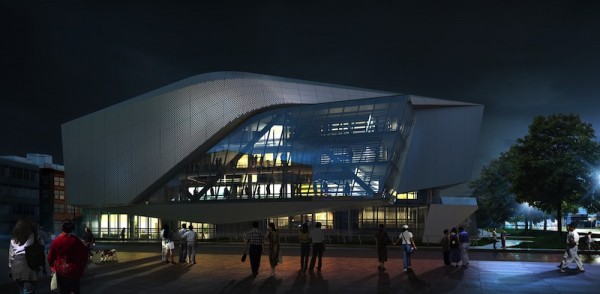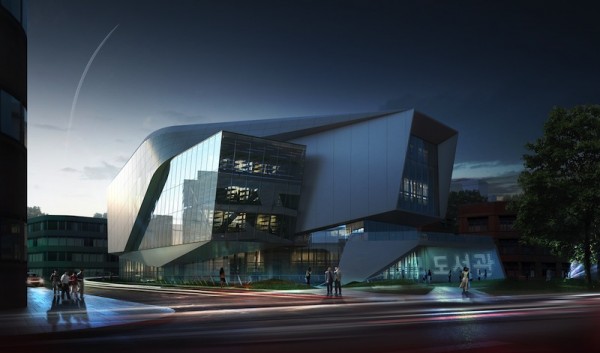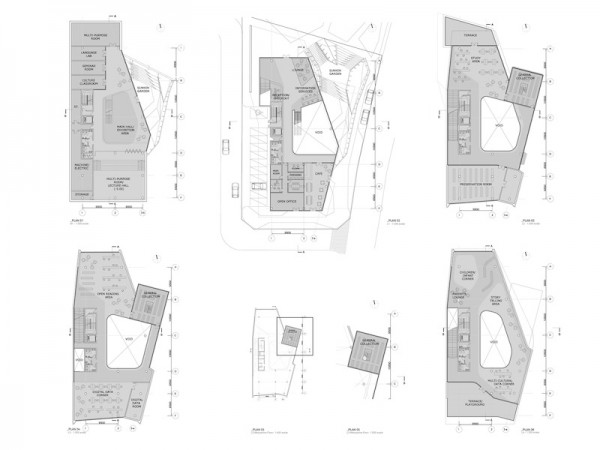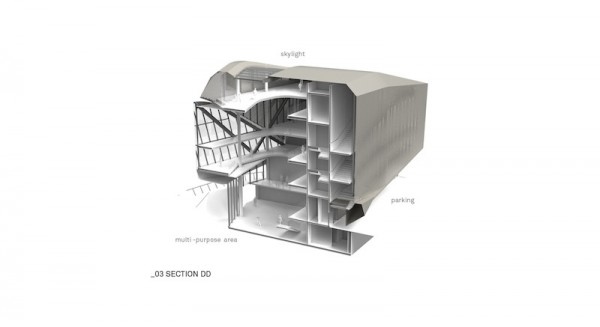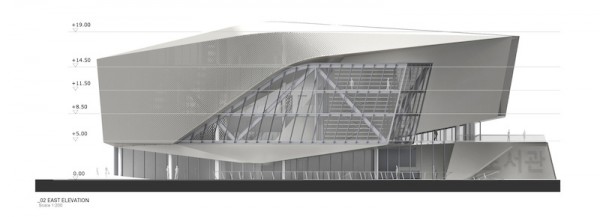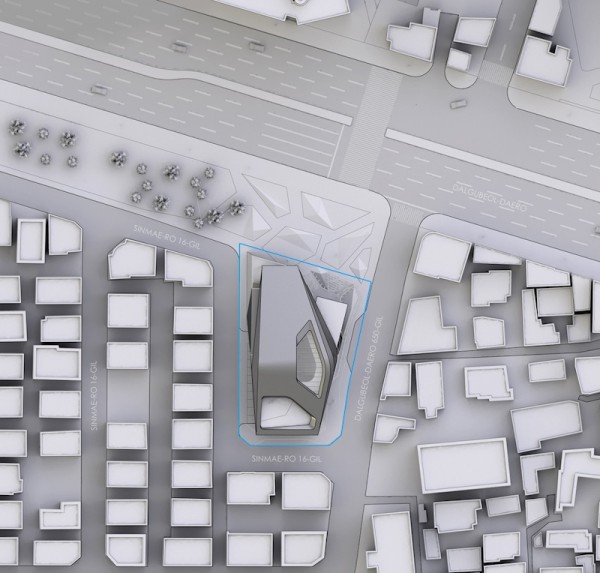Architects Łukasz Wawrzeńczyk, Frisly Colop Morales, Jason Easter, and Adrian Yau understand that the cultural importance of the public library lies within the inherent power of the knowledge which it holds. This knowledge can be a significant life-altering force for the patrons of the library and furthermore within the larger community which it serves. The methods by which this information is contained and transmitted are continually evolving, yet the correlation between access to such information and issues such as upward social mobility and increased life opportunity are evident.
The Daegu Gosan Public Library, like many libraries, stands as the physical manifestation of the concept of shared knowledge. As such, it is temple of knowledge, honoring the book as the foundation media of information communication, and making way for the new learning trends that result from the current digital movement. The library also provides opportunities for intellectual trade and growth both analog and digital within the Suseong-gu community. Furthermore, it celebrates Daegu as a place rich with culture and an evolving demographic that places high value on the acquisition of knowledge.
Similar to the temples of the varied religions, the Gosan Library celebrates a particular belief system, a particular way of life, and the belief in the power and importance of knowledge. The library offers the opportunity for intellectual and cultural exchange in ways both traditional as well as those less often associated with the library typology. The book stacks are consolidated into a single mass. The clear glass object creates an activated tribute to printed literature as the foundation of information transmission. In honoring the written and bound knowledge in this way, a more open floor plan is created for related program uses. The digital data space, reading room, children’s area and other programs flow off of a large atrium space providing a more flexible environment for exchange. These spaces are hence able to adapt to the evolving digital media to maintain a quality learning environment.
The Gosan Library’s proximity to the local subway station and a large public park makes it a prime location for cultural exchange. Both passive and formal manners of interaction are facilitated by this public space. To reinforce this the northeast corner of the site pulls the landscape from the park under the building, extending the public space into the site. The resulting plaza creates a partially covered space which will be utilized and activated by the local communities. This sunken garden provides valuable natural daylight to the building functions located below grade. The life-long learning center and multi-purpose spaces surround this plaza providing easy access for the community. Additional terraces at the second level reading area and the roof connect the building back to the park and existing context.

